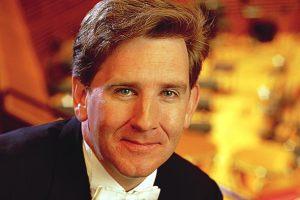
While these works hardly amount to a survey of Copland’s music (no one program could accomplish that), they do illuminate one of the composer’s most fertile periods: the years between 1942 and 1946, when he refined the distinctive American vocabulary — the spare harmonies, spacious textures, forthright melodies, and vital rhythms we have come to think of as quintessentially Copland. Hoe-down, part of an orchestral suite excerpted from the 1942 ballet score Rodeo, paints a vibrant picture of the American West — one that Copland, a Brooklyn-born Jew who studied in Paris with Nadia Boulanger, had never actually seen.
No matter — written for dancer/choreographer Agnes DeMille, who gave the ballet’s wildly successful first performance in New York, the work remains a singularly inventive vision of the American West, and an exuberant example of this composer’s most accessible work. So, too, does Appalachian Spring, also created for DeMille; the austere and serenely beautiful 1944 score, built around the Shaker tune A Gift to be Simple, never fails to move an audience.
The Third Symphony rounds out the program. Commissioned by Serge Koussevitsky, who called it the greatest American symphony to date, the 1946 score evokes both a mythical America, and a specific one. The fourth movement incorporates music Copland wrote earlier as a tribute to the ordinary men and women who were “doing the dirty work” in World War II — a short piece for brass and percussion he titled Fanfare for the Common Man, which went on to become one of the most popular and oft-performed musical works of the century.
The program concludes Marin Symphony’s 2008-2009 season. Neale, who has a proven track record with Copland’s music, both in Marin and during his previous tenures as San Francisco Symphony’s associate conductor and music director of the San Francisco Symphony Youth Orchestra, gives a preconcert talk one hour before each performance.

